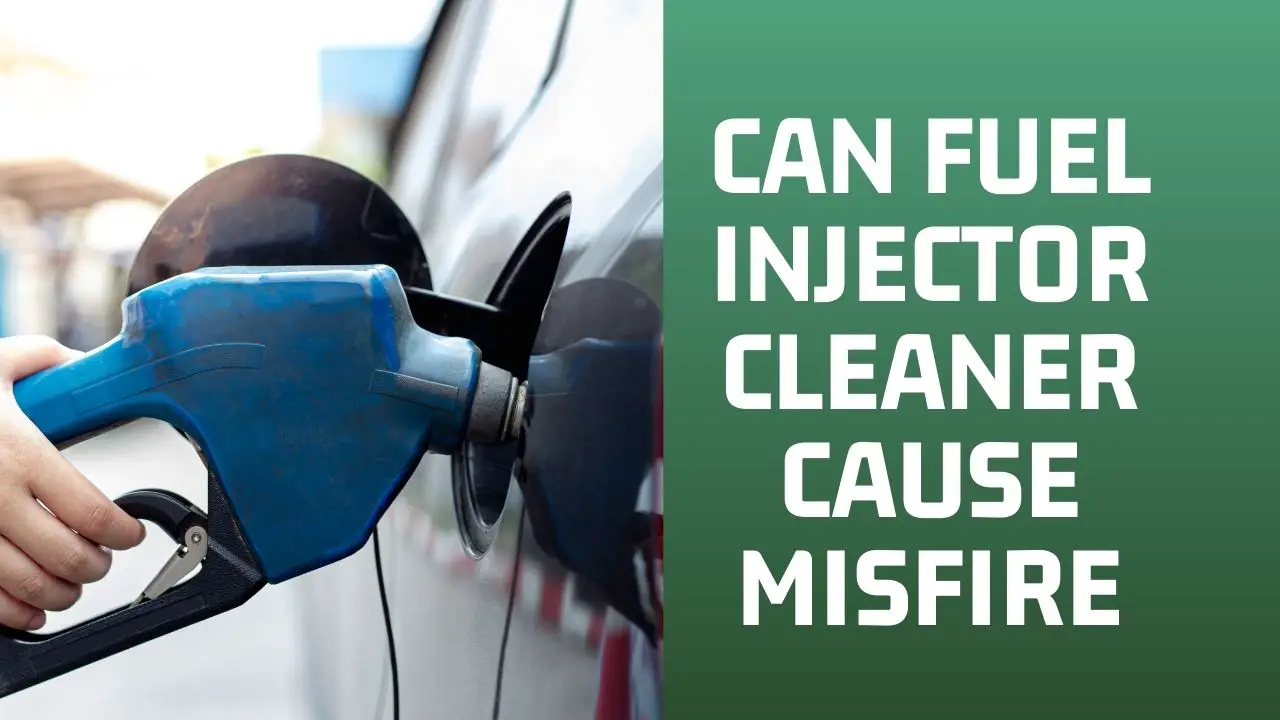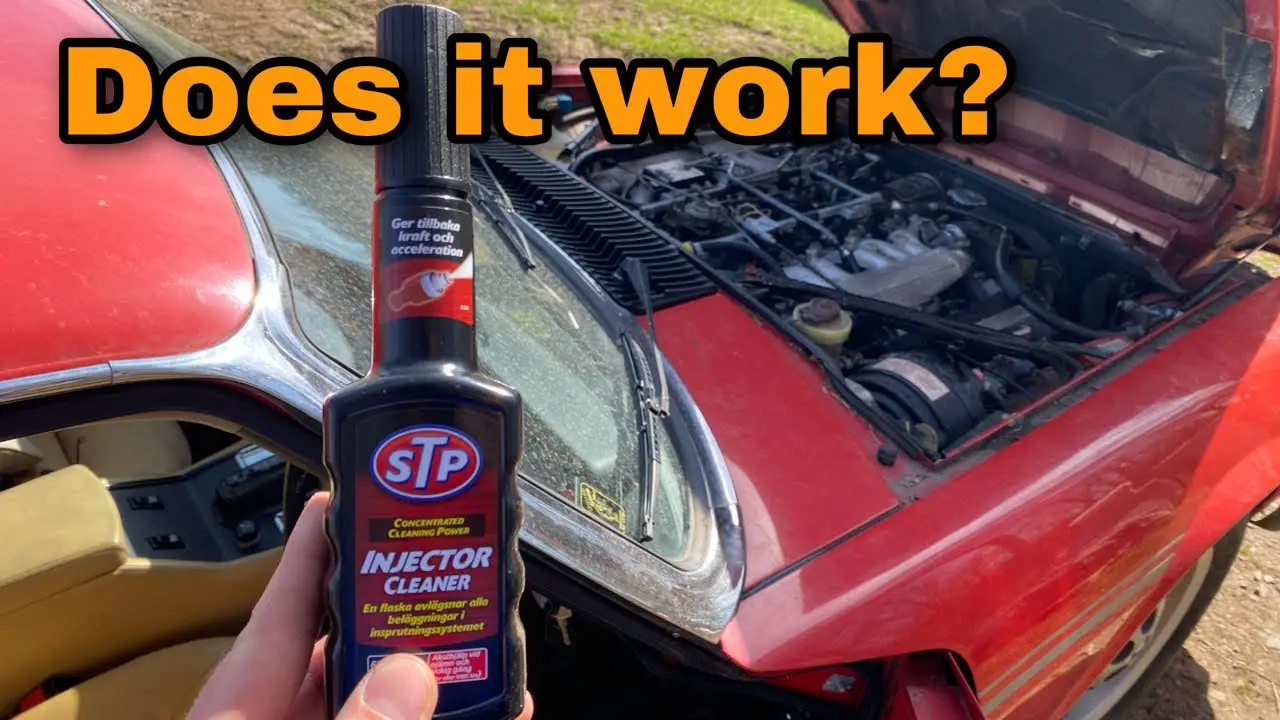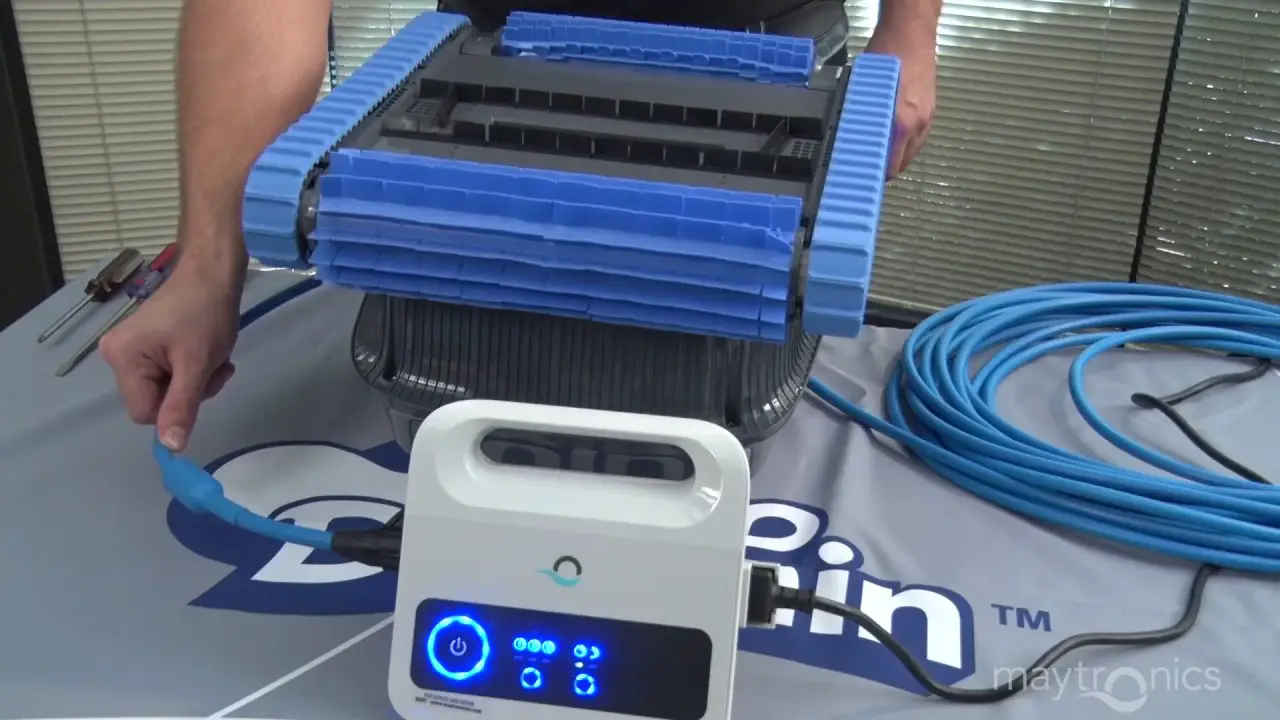Yes, a fuel system cleaner can fix a misfire in most cases. A misfire occurs when the spark plug fails to ignite the air-fuel mixture properly.
This can lead to poor engine performance, reduced fuel efficiency, and increased emissions. While there can be various causes for a misfire, one common culprit is dirty fuel injectors or carbon buildup in the combustion chamber. Using a fuel system cleaner can effectively remove these deposits and improve fuel atomization, allowing for better combustion and reducing the occurrence of misfires.
However, it’s important to note that a fuel system cleaner may not always be the solution if the misfire is caused by other issues such as a faulty ignition coil or damaged spark plugs. In such cases, further diagnosis and repair may be necessary.
What Is A Misfire And Its Causes
A misfire in a vehicle occurs when the engine fails to ignite fuel in one or more cylinders, leading to a loss of power and rough running. While a fuel system cleaner can help resolve some misfire issues caused by fuel residue or injector clogs, other underlying causes like faulty spark plugs, ignition coils, or air intake problems may require additional repairs.
Misfire in an engine refers to a condition where the fuel, air, and spark plug combustion process is disrupted, resulting in the engine not running smoothly. This can lead to a range of issues, from decreased performance to potential damage to engine components if not addressed promptly.
Misfires can be caused by various factors, including:
Definition Of A Misfire
- Loss of spark: When the spark plug fails to ignite the air-fuel mixture in the combustion chamber.
- Fuel delivery problems: Such as clogged fuel injectors or a malfunctioning fuel pump resulting in insufficient or uneven fuel supply.
- Vacuum leaks: Air leaks in the intake manifold or vacuum hoses, disrupting the proper air-fuel ratio.
- Faulty sensors: Malfunctioning sensors that provide inaccurate readings to the engine control unit (ECU), leading to improper fuel or ignition timing.
- Ignition system issues: Worn-out spark plugs, ignition coils, or ignition wires can prevent proper spark generation.
Common Causes Of Misfires In Engines:
- Worn-out spark plugs: Over time, spark plugs can accumulate deposits, making it difficult for them to ignite the air-fuel mixture properly.
- Ignition coil failure: Weak or faulty ignition coils may not provide sufficient voltage to generate a strong spark.
- Clogged fuel injectors: Dirt, debris, or carbon buildup in fuel injectors can restrict fuel flow, resulting in inadequate combustion.
- Failing oxygen sensors: Oxygen sensors determine the air-fuel ratio, and when they malfunction, the engine may run too rich or lean, leading to misfires.
- Low fuel pressure: Insufficient fuel pressure can cause fuel delivery problems, affecting the combustion process.
- Vacuum leaks: Leaks in the vacuum system can disrupt the air-fuel mixture, leading to rough running engines.
- Faulty EGR valve: A malfunctioning exhaust gas recirculation (EGR) valve can result in an imbalance of exhaust gases and oxygen in the combustion chamber, causing misfires.
How Misfires Affect Engine Performance:
- Decreased power and acceleration: A misfiring engine may experience reduced power output, making acceleration sluggish and affecting overall performance.
- Rough idling: Misfires can cause the engine to run unevenly at idle, creating vibrations and an abnormal noise.
- Increased fuel consumption: Inefficient combustion due to misfires can lead to increased fuel consumption, potentially impacting your wallet.
- Increased emissions: Misfires can result in higher levels of harmful pollutants being emitted from the exhaust.
- Potential engine damage: Ignoring misfires can lead to further damage to engine components, such as catalytic converters and oxygen sensors, resulting in costly repairs.
Remember, identifying and addressing the root causes of misfires is essential to maintaining a well-functioning engine. Regular maintenance, such as replacing spark plugs and ensuring proper fuel system cleaning, can help prevent misfires and keep your engine running smoothly.
Understanding Fuel System Cleaners
Discover how fuel system cleaners can help fix misfires in your vehicle’s engine. These cleaners effectively remove carbon deposits and other contaminants from the fuel system, improving fuel flow and combustion for smoother, more efficient engine performance. Say goodbye to misfires and enjoy a smoother ride with a fuel system cleaner.
What Are Fuel System Cleaners?
Fuel system cleaners are specially developed products designed to cleanse and maintain the fuel system of a vehicle. They aim to remove harmful deposits and impurities that can accumulate over time, such as carbon deposits, varnish, and fuel residue. These deposits can negatively impact the performance, efficiency, and longevity of the engine and its components.
Fuel system cleaners are typically added to the gas tank and work by mixing with the fuel, cleaning the injectors, intake valves, combustion chamber, and other critical parts of the fuel system.
Fuel system cleaners offer several benefits including improved engine performance, increased fuel efficiency, reduced emissions, and smoother acceleration. They can also help prevent or resolve common fuel system problems like rough idling, hesitation, and misfires. However, it is important to choose the right fuel system cleaner and use it according to the manufacturer’s instructions to ensure optimal results.
Below, we’ll delve deeper into how fuel system cleaners work and explore the different types available in the market.
How Fuel System Cleaners Work:
- Fuel system cleaners contain powerful detergents and additives that help break down and dissolve carbon deposits, varnish, and other contaminants.
- When mixed with the fuel, the cleaner circulates through the fuel system, reaching the injectors, intake valves, and combustion chamber.
- The detergents in the cleaner interact with the deposits, loosening and dissolving them.
- These dissolved contaminants are then burned off during the combustion process, eliminating them from the fuel system.
- Additionally, fuel system cleaners may also contain lubricants and corrosion inhibitors that help protect the fuel system components and improve overall performance.
While fuel system cleaners can be effective in addressing certain fuel system issues, it is important to note that they may not fix all problems, especially if the underlying issue is mechanical or electrical in nature. If your vehicle is experiencing persistent misfires or other serious performance issues, it is advisable to consult a professional mechanic for a thorough diagnosis and repair.
Different Types Of Fuel System Cleaners Available In The Market:
- Fuel Injector Cleaners: These cleaners specifically target and clean the fuel injectors, which are responsible for delivering fuel to the engine’s combustion chamber. They can help improve fuel atomization, restore injector spray patterns, and maintain optimal fuel flow.
- Intake Valve Cleaners: Intake valve cleaners focus on removing carbon deposits and buildup from the intake valves. By keeping the intake valves clean, these cleaners can help maintain proper airflow, reduce intake restrictions, and prevent misfires.
- Combustion Chamber Cleaners: These cleaners are designed to clean the combustion chamber, including the piston tops, cylinder walls, and cylinder heads. They help remove carbon deposits and prevent the formation of harmful deposits, maximizing engine performance and efficiency.
- Complete Fuel System Cleaners: Complete fuel system cleaners offer a comprehensive solution for cleaning the entire fuel system, including the injectors, intake valves, combustion chamber, and other components. They provide a thorough cleanse and help restore optimal performance.
It’s worth mentioning that some fuel system cleaners may require multiple treatments or regular use for the best results. Always follow the instructions provided by the manufacturer and choose a reputable brand for quality and effectiveness.
Can Fuel System Cleaner Fix A Misfire?
Fuel system cleaner is not a guaranteed fix for a misfire, as the cause may be more complex. However, using a fuel system cleaner can help improve fuel efficiency and reduce carbon buildup, which may alleviate the symptoms of a misfire.
Examining The Role Of Fuel System Cleaner In Resolving Misfires
A misfire in your vehicle’s engine can be frustrating and can negatively affect its performance. If you’re experiencing this issue, you may wonder if using a fuel system cleaner can help. Let’s explore the role of fuel system cleaners in tackling misfires.
How Fuel System Cleaners Can Help Clean Fuel Injectors And Remove Deposits:
- Fuel system cleaners are specifically designed to clean fuel injectors, which play a crucial role in delivering the right amount of fuel to the engine.
- These cleaners contain detergent additives that target and break down stubborn deposits that can accumulate over time in the fuel injectors.
- By effectively removing deposits, fuel system cleaners enhance the fuel flow and atomization, allowing the engine to operate properly and potentially eliminate misfires.
Addressing The Potential Benefits And Limitations Of Fuel System Cleaners For Misfire Issues:
- Benefits:
- Improved fuel atomization: Fuel system cleaners can optimize fuel atomization, ensuring a more efficient combustion process and reducing the likelihood of misfires.
- Enhanced engine performance: By clearing fuel injectors of deposits, cleaners promote smooth engine operation, leading to improved power, acceleration, and overall performance.
- Cost-effective solution: Using a fuel system cleaner is a relatively affordable option compared to more extensive engine repairs that misfire issues might require.
- Limitations:
- Severely damaged components: If the misfires are caused by significantly damaged engine components, fuel system cleaners may not be sufficient to resolve the issue entirely. In such cases, professional inspection and repairs might be necessary.
- Advanced carbon buildup: If the fuel injectors are heavily carbonized or clogged, a fuel system cleaner may not be able to remove all the deposits in one application. Multiple treatments or professional cleaning might be required.
- Lack of immediate results: While fuel system cleaners can be effective over time, it’s important to note that immediate results may not always be apparent. It may take a few treatments before witnessing a significant improvement in misfire issues.
So, can fuel system cleaners fix a misfire? It’s possible that using a fuel system cleaner can help alleviate misfire issues by cleaning fuel injectors and removing deposits. However, it’s important to keep in mind the potential limitations and consider seeking professional assistance if the misfire problem persists.
Remember, regular vehicle maintenance and using high-quality fuel can also contribute to preventing misfires and maintaining optimal engine performance.

Credit: shockabsorberpro.com
Factors To Consider Before Using A Fuel System Cleaner
Before using a fuel system cleaner, there are a few factors to consider. However, can a fuel system cleaner fix a misfire? Let’s take a closer look at the important factors to understand if this is a viable solution for fixing a misfire issue.
If you’re experiencing a misfire in your vehicle, you may be wondering if a fuel system cleaner can help resolve the issue. While fuel system cleaners can be beneficial in certain cases, it’s important to evaluate the severity of the misfire and consider other potential causes before using one.
Here are some factors to consider:
Evaluating The Severity Of The Misfire:
- Assess the frequency and intensity of the misfire: Determine how often the misfire occurs and whether it is a minor hiccup or a more severe issue.
- Check for warning signs: Look out for symptoms such as engine hesitation, rough idling, decreased fuel efficiency, or the illumination of the check engine light.
- Consider the impact on performance: Evaluate how the misfire is affecting your vehicle’s overall performance, including acceleration, power, and smoothness of operation.
Identifying Other Potential Causes Of Misfires:
- Ignition system issues: Misfires can arise from faulty spark plugs, ignition coils, or ignition wires. Inspect these components to rule out any problems.
- Fuel delivery problems: Clogged fuel injectors, a malfunctioning fuel pump, or a dirty fuel filter can lead to misfires. Ensure that the fuel system is functioning properly.
- Vacuum leaks: Leaky hoses or gaskets can cause a lean fuel mixture, resulting in misfires. Examine the vacuum system for any signs of leaks.
- Engine mechanical issues: Problems with the valves, pistons, or cylinder compression can contribute to misfires. Have a mechanic perform a thorough inspection to rule out such issues.
Consulting With A Professional Mechanic Or Technician For Advice:
- Seek expert opinion: A professional mechanic or technician can help diagnose the exact cause of the misfire and provide appropriate guidance.
- Get a professional diagnosis: Technicians have specialized tools and knowledge to conduct diagnostic tests that can determine the underlying issue accurately.
- Consider long-term solutions: Instead of solely relying on fuel system cleaners to address the misfire, a mechanic can recommend comprehensive repairs or maintenance for lasting results.
Before rushing to use a fuel system cleaner for a misfire, it is essential to consider the severity of the issue, explore potential causes, and seek professional advice. While a fuel system cleaner might be a helpful solution for minor misfires, addressing any underlying problems is crucial for effective and long-lasting resolution.
Steps To Use Fuel System Cleaner For Misfire Issues
To fix misfire issues, follow these steps for using fuel system cleaner. First, locate the fuel system cleaner additive. Next, pour the recommended amount into your vehicle’s gas tank. Finally, drive your vehicle normally to allow the additive to clean the fuel system and resolve misfire problems.
Precautions And Safety Measures To Be Aware Of Before Using A Fuel System Cleaner:
Before using a fuel system cleaner to resolve misfire issues in your vehicle, it’s important to take the necessary precautions and follow safety measures to ensure a smooth and safe process. Here are some key points to keep in mind:
- Read the instructions: Familiarize yourself with the instructions provided by the fuel system cleaner manufacturer. Each product may have specific guidelines, so it’s vital to understand how to use it properly.
- Check compatibility: Ensure that the fuel system cleaner you choose is compatible with your vehicle’s fuel system. Refer to the product packaging or contact the manufacturer if you have any doubts.
- Park in a well-ventilated area: Perform the fuel system cleaning process in a well-ventilated space, such as outdoors or in a properly ventilated garage. This will help prevent the buildup of harmful fumes and ensure your safety.
- Wear protective gear: It’s essential to wear appropriate protective gear, such as gloves and eye protection, during the fuel system cleaning process. This will safeguard you from any potential contact with chemicals or fuel.
- Disconnect the battery: Before initiating the fuel system cleaning procedure, disconnect the battery by removing the negative terminal. This step will prevent any accidental electrical sparks or damage during the process.
- Follow fuel system cleaner recommendations: Adhere to the recommended dosage and dilution instructions provided by the fuel system cleaner manufacturer. Using excess cleaner or diluting it incorrectly could lead to adverse effects on your vehicle’s fuel system.
- Use a funnel: To avoid spillage and ensure accurate application, use a funnel when pouring the fuel system cleaner into your vehicle’s fuel tank. This will prevent any accidental contact with the exterior of your car or engine components.
- Allow sufficient time: After adding the fuel system cleaner to your vehicle’s fuel tank, let it sit for the recommended duration. This will allow the cleaner to effectively circulate through the fuel system and target the misfire issues.
- Seek professional advice if necessary: If you have any concerns or doubts about using a fuel system cleaner or if the misfire issue persists after trying the cleaner, it’s advisable to consult a professional mechanic or technician for further assistance.
Step-By-Step Instructions On How To Use A Fuel System Cleaner Effectively:
To effectively use a fuel system cleaner to address misfire issues in your vehicle, follow these simple steps:
- Choose a suitable fuel system cleaner: Select a fuel system cleaner that is specifically designed to resolve misfire issues. Read product reviews and check customer feedback to ensure you choose a reliable and effective option.
- Park in a well-ventilated area: Find a well-ventilated space to perform the fuel system cleaning process, such as outdoors or in a properly ventilated garage. This will help prevent the buildup of harmful fumes.
- Read the instructions: Thoroughly read and understand the instructions provided by the fuel system cleaner manufacturer. Pay attention to the dosage, dilution guidelines (if applicable), and any specific steps recommended for your vehicle type.
- Disconnect the battery: Prior to starting the fuel system cleaning, disconnect the battery by removing the negative terminal. This precaution will minimize the risk of electrical sparks or damage.
- Locate the fuel tank: Locate the fuel tank in your vehicle. Refer to your vehicle’s manual if you’re unsure about its exact location.
- Pour the fuel system cleaner: Using a funnel, carefully pour the recommended amount of fuel system cleaner into your vehicle’s fuel tank. Ensure precision to avoid any spillage or contact with external components.
- Close the fuel tank cap: Securely close the fuel tank cap after adding the fuel system cleaner.
- Start the engine: Start your vehicle’s engine and allow it to idle for a few minutes. This will enable the fuel system cleaner to circulate and work its way through the fuel system.
- Drive the vehicle: Take your vehicle for a short drive, preferably on a highway or road where you can maintain a constant speed. This will aid in the fuel system cleaner’s distribution and help address the misfire issues.
- Observe improvement: Monitor your vehicle’s performance after using the fuel system cleaner. Ideally, you should notice an improvement in the misfire issues. If the problem persists, it may require more comprehensive diagnostics or professional assistance.
Tips For Maximizing The Effectiveness Of Fuel System Cleaners In Resolving Misfires:
To get the best results when using fuel system cleaners for misfire issues, consider the following tips:
- Regular maintenance: Incorporate regular maintenance of your vehicle’s fuel system to prevent misfires. This includes using fuel system cleaners at recommended intervals to keep the system clean and functioning optimally.
- Use reputable brands: Choose fuel system cleaners from reputable brands to ensure quality and effectiveness. Read reviews and seek recommendations from trusted sources to make informed choices.
- Identify the underlying cause: It’s essential to identify and address the root cause of misfires. Misfires can be caused by various factors such as faulty spark plugs, clogged fuel injectors, or a malfunctioning oxygen sensor. Consult a professional to diagnose and fix the underlying issue.
- Follow manufacturer’s guidelines: Always follow the manufacturer’s instructions and guidelines when using fuel system cleaners. Using excessive amounts or deviating from the recommended dosage can lead to adverse effects.
- Combine with other solutions: Fuel system cleaners can be more effective when used in conjunction with other solutions. Consider combining the cleaner with other maintenance tasks such as changing spark plugs, replacing fuel filters, or cleaning the throttle body.
- Drive under varying conditions: Occasionally taking your vehicle on longer drives or varying driving conditions can help maintain a clean fuel system. This prevents the buildup of deposits and ensures smoother engine performance.
- Seek professional assistance if needed: If the misfire issues persist or worsen despite using a fuel system cleaner, it’s advisable to seek professional help. A qualified mechanic can conduct a comprehensive diagnosis and perform necessary repairs.
Using a fuel system cleaner can be an effective solution for resolving misfire issues in your vehicle. By following these precautions, step-by-step instructions, and tips for maximum effectiveness, you can maintain a clean fuel system and enjoy improved engine performance.
Remember to prioritize safety and consult professionals when necessary.
Alternative Solutions For Misfire Issues
Fuel system cleaner can potentially fix misfire issues by cleaning out carbon deposits and improving fuel flow. This alternative solution is worth considering before seeking more costly repairs or replacements.
Exploring Other Possible Solutions For Misfires:
Misfires in a vehicle’s engine can be frustrating and even dangerous if left unaddressed. While fuel system cleaners can often be a helpful solution for misfires, there are alternative options worth considering before reaching for the cleaner bottle. By consulting with a mechanic, you can determine the best course of action and ensure your engine is running smoothly again.
Here are a few alternative solutions to consider:
- Checking and replacing spark plugs: Worn or damaged spark plugs can contribute to misfires. Inspecting the spark plugs and replacing them if necessary can help resolve the issue.
- Inspecting ignition coils: Faulty ignition coils can also lead to misfires. Having them inspected and replaced when needed can improve the performance of your engine.
- Testing fuel injectors: Clogged or malfunctioning fuel injectors can cause misfires. Having a mechanic test and clean or replace the injectors can help resolve the issue.
- Examining the air intake system: A blocked air intake system can disrupt the air-fuel mixture and lead to misfires. Inspecting and cleaning the air filter, throttle body, and intake manifold can alleviate the problem.
- Verifying the fuel pressure: Insufficient fuel pressure can contribute to misfires. A mechanics can check the fuel pressure and make any necessary adjustments or repairs.
When fuel system cleaner may not be the most suitable option:
While fuel system cleaners can be effective in resolving misfires caused by carbon buildup, there are certain situations where they may not be the most suitable solution. Consider these scenarios:
- Mechanical issues: If the misfires are due to more serious mechanical issues, such as a faulty fuel pump or a damaged sensor, a fuel system cleaner may not provide the desired results. Consulting with a mechanic can help identify and address these underlying problems.
- Older vehicles: In some cases, fuel system cleaners may be less effective in older vehicles with excessive carbon buildup. The cleaner may not be able to remove all the deposits, and additional measures may be required to fully resolve the misfires.
- Maintenance neglect: If your vehicle has not been properly maintained and has significant buildup of deposits in the fuel system, a fuel system cleaner alone may not be enough to fix the misfires. Regular maintenance and cleaning of the fuel system should be prioritized.
Consulting with a mechanic to determine the best course of action:
When dealing with misfires, it is crucial to consult with a mechanic to diagnose and address the underlying issues. This helps ensure that the most appropriate solution is applied to fix the misfires and prevent further damage to the engine.
A mechanic has the expertise and diagnostic tools to accurately identify the cause of the misfires and recommend the necessary repairs or maintenance. Taking the time to consult with a professional can save you from unnecessary expenses and headaches in the long run.
Remember, while fuel system cleaners can be a useful tool in resolving misfires, exploring alternative solutions and consulting with a mechanic are essential steps to take for a comprehensive approach to resolving misfire issues.
Frequently Asked Questions For Can Fuel System Cleaner Fix A Misfire
Will Fuel System Cleaner Fix Misfire?
A fuel system cleaner may help fix a misfire in your vehicle’s engine.
Can A Dirty Fuel System Cause Misfire?
Yes, a dirty fuel system can cause misfire in your vehicle.
Will Fuel Injector Cleaner Help Rough Idle?
Yes, fuel injector cleaner can help with rough idle by cleaning the injectors and improving fuel flow.
Will Bad Fuel Injector Cause Misfire?
Yes, a bad fuel injector can cause misfire in your vehicle’s engine.
Conclusion
Using a fuel system cleaner to fix a misfire can provide some benefits. While it may not be a foolproof solution for all cases, it can certainly help improve and optimize your engine’s performance. The cleaner works by removing carbon deposits and residues, which can contribute to misfires.
By enhancing fuel combustion, it can also reduce rough idling and improve acceleration. However, it’s important to note that fuel system cleaners cannot fix underlying mechanical issues causing the misfire. If you’re experiencing persistent misfires, it’s always recommended to consult a professional mechanic for a thorough diagnosis.
Keep in mind that regular vehicle maintenance, including cleaning your fuel system, can help prevent or minimize misfires in the first place. So, if you’re looking to maintain a smooth and efficient engine, incorporating a fuel system cleaner into your maintenance routine could be worth considering.





